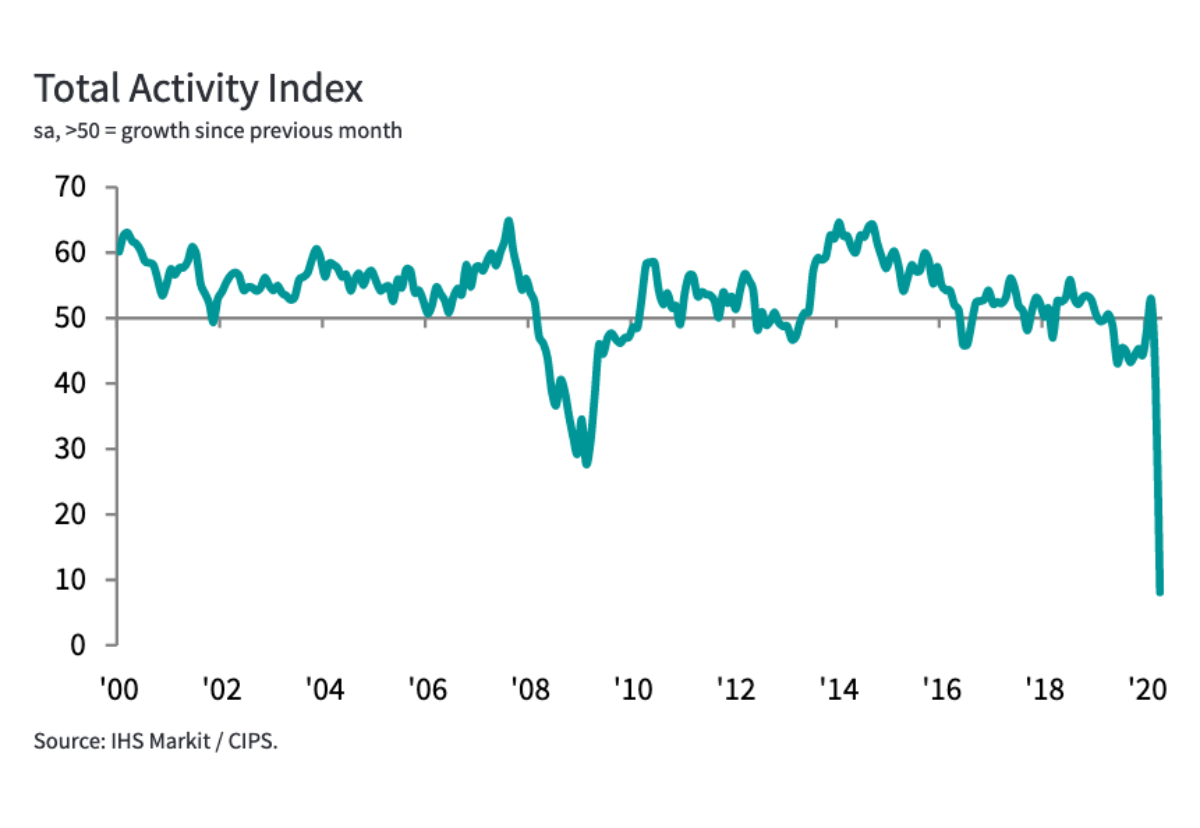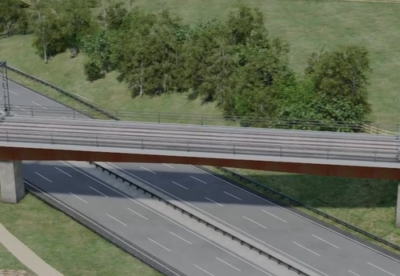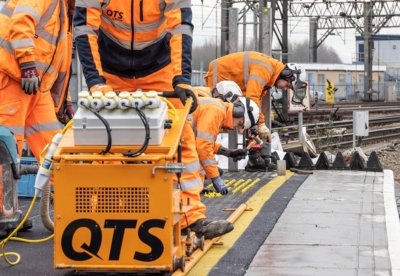The bellwether IHS Markit/CIPS UK Construction Total Activity Index saw buyers reporting the fastest decline in UK construction output since the survey began 23 years ago.
The index plummeted to 8.2 in April from 39.3 in March. Any reading below the 50 no-change mark represents a contraction in output. The previous record low was 27.8 in February 2009.
Tim Moore, Economics Director at IHS Markit, which compiles the survey said: “The rapid plunge in UK construction output during April stands out even in a month of record low PMI data for the manufacturing and service sectors.
“A drop in construction activity of historic proportions in April looks set to be followed by a gradual reopening of sites in the coming weeks, subject to strict reviews of safety measures.
“However, the prospect of severe disruption across the supply chain will continue over the longer-term and widespread use of the government job retention scheme has been needed to cushion the impact on employment.
“Looking ahead, construction companies widely commented on worries about cash flow, rising operating costs and severely reduced productivity, as well as a slump in demand for new construction projects.”
All three main categories of construction work experienced a survey-record fall during April, with declines in house building (7.3) and commercial activity (7.7) exceeding that for civil engineering (14.6).
Business expectations for the year ahead dropped slightly since March and equalled the survey-record low seen in October 2008.
Construction firms widely noted concerns beyond simply reopening sites, including cash flow difficulties across the supply chain, rising costs and severely reduced productivity.
Duncan Brock, Group Director at the Chartered Institute of Procurement & Supply said: “Only a few civil engineering and infrastructure projects were able to continue in April, but a tentative restart is expected in other areas such as house building and commercial construction in the short-term.
“As new plans from policymakers are developed over social distancing, building work may continue but not as we know it as restrictions and new safety rules are likely to make progress more difficult.
“For a sector still not fully recovered from the skills shortages created by the financial crisis in 2008, the vacuum of output created by the pandemic has knocked the sector back another decade.”







 (300 x 250 px).jpg)















































.gif)

